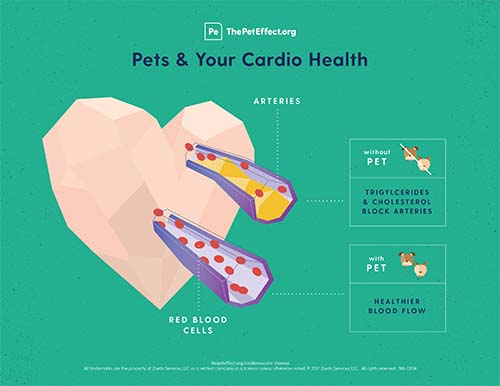IDEXX Human-Animal Bond Lecture Series Brings the Science of the Human-Animal Bond to Veterinarians and Pet Owners
Washington, D.C. (April 23, 2021) — The Human Animal Bond Research Institute (HABRI) and IDEXX today hosted a virtual lecture during Autism Awareness Month, focusing on new research demonstrating the impact of shelter cat adoption on the social skills and anxiety levels in children with autism spectrum disorder (ASD).
This lecture titled, “The Impact of Shelter Cat Adoption in Families of Children with Autism Spectrum Disorder”, features Dr. Gretchen Carlisle, Research Scientist, Research Center for Human Animal Interaction (ReCHAI), University of Missouri College of Veterinary Medicine, discussing her HABRI-funded publication, “Exploratory study of cat adoption in families of children with autism: Impact on children’s social skills and anxiety”, which found that found introduction of a shelter cat into the home may have a positive impact on children with ASD and their parents.
Results from Dr. Carlisle’s project were published in the Journal of Pediatric Nursing in December 2020. This was the first randomized controlled trial of adoption of a temperament-screened shelter cat by families of children with ASD. This exploratory study found that introduction of a cat into the home may have a positive impact on children with ASD, including greater Empathy and less Separation Anxiety for children with ASD, along with fewer problem behaviors including Externalizing, Bullying and Hyperactivity/Inattention. The children and their parents reported close bonds with their new cats almost immediately after adoption, and despite the cat caretaking responsibility, these bonds did not decrease over time.
“These research results show that children with autism and their families can benefit from the calmer, quieter demeanor of a pet cat,” said Steven Feldman, President of HABRI. “HABRI and IDEXX hope that together, we can help raise awareness of the health benefits of pet cats and help more cats find loving homes.”
Professionals who viewed this session live are eligible to receive RACE-approved Continuing Education (CE) credit through the American Association of Veterinary State Boards (AAVSB). The lecture, along with the others in the series will remain available on-demand at http://www.habri.org/HAB-Lectures.
About HABRI
HABRI is a not-for-profit organization that maintains the world’s largest online library of human-animal bond research and information; funds innovative research projects to scientifically document the health benefits of companion animals; and informs the public about human-animal bond research and the beneficial role of companion animals in society. For more information, please visit https://www.habri.org/.
About IDEXX
IDEXX Laboratories, Inc. is a member of the S&P 500® Index and is a leader in pet healthcare innovation, serving practicing veterinarians around the world with a broad range of diagnostic and information technology-based products and services. IDEXX products enhance the ability of veterinarians to provide advanced medical care, improve staff efficiency, and build more economically successful practices. IDEXX is also a worldwide leader in providing diagnostic tests and information for livestock and poultry, tests for the quality and safety of water and milk, and point-of-care and laboratory diagnostics for human medicine. For more information, please visit https://www.idexx.com/en/.
Contact
Jamie Baxter
jamie@theimpetusagency.com
775.322.4022
###





